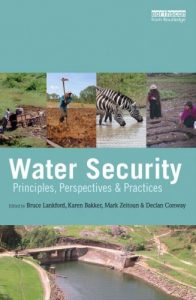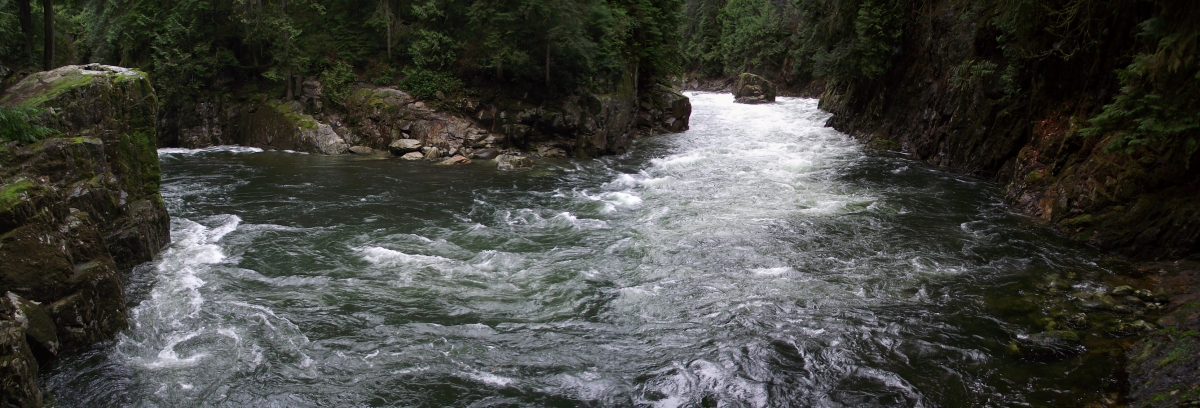Norman, Emma S., Karen Bakker, Gemma Dunn. 2011. Recent developments in Canadian water policy: An emerging water security paradigm. Canadian Water Resources Journal. 36(1), 53-66.
Category: Publications
Canadian Approaches to Assessing Water Security: an Inventory of Indicators
Dunn, Gemma and Karen Bakker (2009). Canadian Approaches to Assessing Water Security: an Inventory of Indicators (Policy Report). Vancouver, BC: UBC Program on Water Governance.
Water Security: A Primer
Emma Norman with Karen Bakker, Christina Cook, Gemma Dunn and Diana Allen (March 2010). Water Security: A Primer (Policy Report). Vancouver, BC: UBC Program on Water Governance. (Note: This document represents the first formulation of our Water Security Assessment Framework, which has since been refined and updated).
Version française: La sécurité hydrique: Guide d’introduction
Water Alternatives
Special Issue – Water Alternatives
Themed Section: Water Governance and the Politics of Scale
Guest Editors: Emma Norman, Christina Cook and Karen Bakker
Introduction to the Themed Section: Water governance and the politics of scale
Emma Norman, Karen Bakker and Christina Cook
Water Alternatives 5(1): 52-61 Abstract | Full Text – PDF
The politics of scaling water governance and adjudication in New Mexico
Eric P. Perramond
Water Alternatives 5(1): 62-82 Abstract | Full Text – PDF
Toward post-sovereign environmental governance? Politics, scale, and EU Water Framework Directive
Corey Johnson
Water Alternatives 5(1): 83-97 Abstract | Full Text – PDF
State development and the rescaling of agricultural hydrosocial governance in semi-arid Northwest China
Afton Clarke-Sather
Water Alternatives 5(1): 98-118 Abstract | Full Text – PDF
Restructuring and rescaling water governance in mining contexts: The co-production of waterscapes in Peru
Jessica Budds and Leonith Hinojosa
Water Alternatives 5(1): 119-137 Abstract | Full Text – PDF
Cultural politics and transboundary resource governance in the Salish sea
Emma Norman
Water Alternatives 5(1): 138-160 Abstract | Full Text – PDF
Parcelling out the watershed: The recurring consequences of organising Columbia river management within a basin-based territory
Eve Vogel
Water Alternatives 5(1): 161-190 Abstract | Full Text – PDF
Water Security: Debating an emerging paradigm
Cook, C., and Bakker, K. (2012). Water Security: Debating an emerging paradigm. Global Environmental Change, 22(1): 94-102. http://dx.doi.org/10.1016/j.gloenvcha.2011.10.011
Water Security Guidance Document
Dunn, Gemma (ed.) (2012). Water Security Guidance Document. Vancouver, BC: UBC Program on Water Governance.
Water Security: Research Challenges and Opportunities. Science
Bakker, K. (2012). Water Security: Research Challenges and Opportunities. Science, 33(6097): 914-915. DOI: 10.1126/science.1226337
Water Security: Principles, Perspectives and Practices
 Water Security: Principles, Perspectives and Practices
Water Security: Principles, Perspectives and Practices
Edited by Bruce Lankford, Karen Bakker, Mark Zeitoun, Declan Conway
The purpose of this book is to present an overview of the latest research, policy, practitioner, academic and international thinking on water security—an issue that, like water governance a few years ago, has developed much policy awareness and momentum with a wide range of stakeholders. As a concept it is open to multiple interpretations, and the authors here set out the various approaches to the topic from different perspectives.
Key themes addressed include:
· Water security as a foreign policy issue
· The interconnected variables of water, food, and human security
· Dimensions other than military and international relations concerns around water security
· Water security theory and methods, tools and audits.
The book is loosely based on a masters level degree plus a short professional course on water security both given at the University of East Anglia, delivered by international authorities on their subjects. It should serve as an introductory textbook as well as be of value to professionals, NGOs, and policy-makers.
For more details see http://www.routledge.com/books/details/9780415534710/
Canadian Water Security Assessment Framework: Tools for Assessing Water Security and Improving Watershed Governance
Bakker, K. and Allen, D. (2015). Canadian Water Security Assessment Framework: Tools for Assessing Water Security and Improving Watershed Governance (End-User Report). Waterloo, ON: Canadian Water Network.
A comparative analysis of current microbial water quality risk assessment and management practices in British Columbia and Ontario, Canada
Dunn, G., Harris, L. Cook, C. and Prystajecky, N. (2014). A comparative analysis of current microbial water quality risk assessment and management practices in British Columbia and Ontario, Canada. Science of the Total Environment 468-469: 544-552.
The main findings of this research and insights for policy makers and practitioners are summarized in this policy brief.
